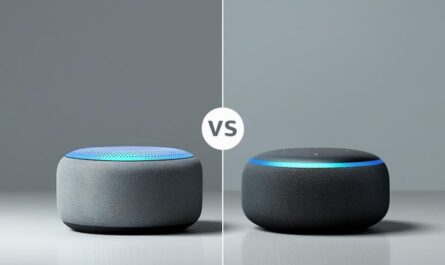Smart home solutions together with AI in real estate are reshaping how we live, buy, and manage properties. You might have noticed how your home gadgets seem to get smarter, or how real estate listings now offer virtual tours that feel almost like being there. This transformation is not just a trend but a shift that impacts your daily life and investment decisions. Smart home technology, powered by AI, is becoming a key factor in real estate, influencing property value, convenience, and security, thereby changing the way you interact with your living space and the market.
What are smart home solutions and why do they matter in real estate?
Smart home solutions refer to interconnected devices and systems in your home that use AI and IoT (Internet of Things) to automate and optimize functions like lighting, security, heating, and entertainment. You can control these systems remotely, often through your smartphone or voice commands. This technology is important because it offers convenience, energy efficiency, and enhanced safety, which buyers increasingly look for when choosing a home. Meanwhile, real estate professionals use AI to analyze market trends and property values, helping you make smarter buying or selling decisions.
How AI enhances smart home solutions
AI plays a central role in smart homes by learning your habits and preferences. For example, AI-powered thermostats adjust temperatures based on your daily routine, which saves energy and keeps your home comfortable without you lifting a finger. Security systems with AI can recognize faces, detect unusual activity, and send real time alerts, giving you peace of mind whether you’re home or away. These systems don’t just react; they predict and adapt, making your home more responsive and efficient.
The role of smart home solutions in property value
You might wonder if investing in smart home technology really adds value to your property. It does. Homes equipped with smart automation often sell faster and at higher prices because they appeal to tech-savvy buyers who want convenience and security. Smart lighting, energy management, and advanced security systems contribute to lower utility bills and safer living, which are strong selling points. On the other hand, homes lacking these features may seem outdated, making smart home solutions a competitive edge in the real estate market.
Examples of smart home solutions in real estate
Imagine a property equipped with lighting integrated with AI technology, which adapts according to the amount of natural light and the presence of people, thereby minimizing energy consumption. Or imagine a smart security system that not only records video but also analyzes patterns to alert you about suspicious behavior. Virtual tours powered by AI let you explore homes remotely, saving time and making the buying process less stressful. These examples show how smart home solutions are not just gadgets but integral parts of modern real estate experiences.
Advantages and disadvantages of smart home solutions
Smart home solutions bring several advantages. You can control your home remotely, improve energy efficiency, and enhance security. These systems often learn your preferences, making your daily life easier and more comfortable. However, you should also be aware of potential downsides. Smart devices rely on internet connectivity, so outages can disrupt their function.
For more information on smart home security, check out this post on: Which smart home security system is best?
Meanwhile, privacy concerns arise because these systems collect data about your habits. Moreover, installation and maintenance costs might be higher than traditional systems. Balancing these factors helps you decide what smart home solutions fit your needs best.
How AI is transforming real estate beyond smart homes
AI’s impact extends beyond the home itself. It streamlines property searches by analyzing your preferences and suggesting homes that match your lifestyle. AI-powered virtual tours and 3D modeling let you explore properties without physically visiting them, which saves time. For real estate agents, AI automates lead generation and client matching, improving efficiency. Additionally, AI enhances property valuation by analyzing market data, helping you price your property competitively or find good investment opportunities.
What you should know about integrating smart home solutions
When considering smart home solutions, you should evaluate compatibility among devices, ease of use, and security features. Integration matters because you want your lighting, security, heating, and entertainment systems to work together smoothly. You can choose platforms like Amazon Alexa or Google Home that act as central hubs, controlling various devices with voice commands. Meanwhile, you should keep software updated to protect against cyber threats. Smart home technology is improving, so staying informed helps you make the most of your investment.
Questions we’re often asked regarding AI and smart home in real estate
Can smart home solutions reduce my utility bills?
Yes, AI-driven energy management systems optimize usage based on your habits, which can lower electricity and heating costs.
Are smart homes more secure?
Generally, yes. AI-powered security systems offer real time monitoring, facial recognition, and alerts that traditional systems lack.
Do smart homes increase property value?
They often do, especially in markets where buyers value technology and convenience.
Is it difficult to install smart home systems?
It depends on the system complexity. Certain devices can be used immediately upon plugging in, whereas others need to be installed by a specialist.
Can I control smart home devices remotely?
Yes, most smart home solutions allow remote control via apps or voice assistants.
Note: Smart home solutions and AI are no longer futuristic concepts but practical tools that impact your home life and real estate decisions. By understanding how these technologies work and their benefits and limitations, you can make better choices that suit your lifestyle and investment goals.
Incorporating smart home solutions into real estate is about making life easier, safer, and more efficient. And as AI continues to advance, these systems will only become more intuitive and valuable, thereby shaping the future of how we live and invest in property.
For more information on smart home controlling, check out this post on: Is there an app to control smart home devices?



